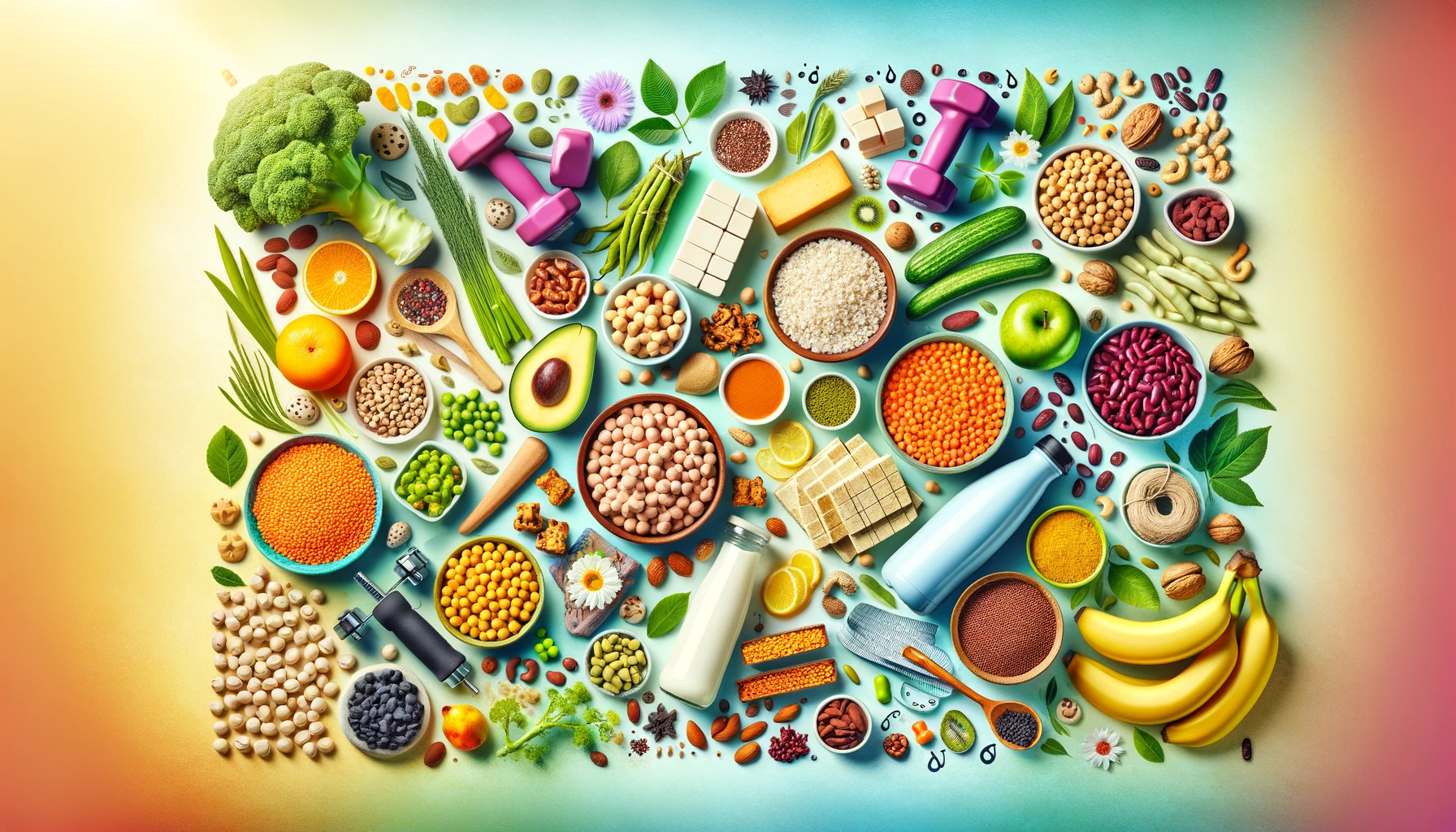One of the myths surrounding plant-based diets is that they can’t provide enough protein to support muscle growth and recovery. However, many athletes are proving this wrong by thriving on plant-based diets. This blog post will delve into how plant-based proteins can effectively support your fitness goals, from building muscle to enhancing recovery.
Introduction to Muscle Growth and Recovery:
Muscle growth, or hypertrophy, occurs when the body repairs tiny tears in muscle fibers caused by exercise, resulting in increased muscle mass. Recovery is the process of healing these fibers and replenishing energy stores. Protein plays a critical role in both processes by providing the necessary building blocks—amino acids—for muscle repair and growth.
Key Nutrients for Muscle Health:
- Protein:
- Essential Amino Acids: These are crucial for muscle protein synthesis. Plant-based sources like quinoa, buckwheat, and soy products are complete proteins containing all essential amino acids.
- Leucine: An important amino acid for muscle repair found in legumes, nuts, and seeds.
- Carbohydrates:
- Energy for Workouts: Carbs are the body’s primary energy source. Whole grains, fruits, and vegetables provide sustained energy for intense workouts.
- Fats:
- Hormone Production: Healthy fats support hormone production, including those involved in muscle growth. Avocados, nuts, and seeds are excellent sources.
Comparing Plant-Based and Animal-Based Proteins:
- Digestibility: Plant-based proteins can be just as digestible as animal proteins, especially when consumed in a varied diet.
- Nutrient Density: Plant-based proteins come with added nutrients like fiber, vitamins, and antioxidants.
- Health Benefits: Lower in saturated fats, plant-based proteins can reduce the risk of chronic diseases.
Success Stories of Plant-Based Athletes:
- Patrik Baboumian: A world-record-holding strongman who thrives on a plant-based diet.
- Venus Williams: An elite tennis player who adopted a plant-based diet to manage an autoimmune disease.
- Rich Roll: An ultra-endurance athlete who credits his plant-based diet for his remarkable athletic performance.
Practical Tips for Maximizing Muscle Growth and Recovery on a Plant-Based Diet:
- Prioritize Protein: Include high-protein foods in every meal and snack.
- Meal Timing: Consume protein-rich foods within 30 minutes to two hours after exercise to optimize recovery.
- Supplement if Needed: Consider plant-based protein powders to meet higher protein demands, especially after intense workouts.
- Stay Hydrated: Proper hydration is essential for muscle recovery and overall performance.
Sample Meal Plans:
- Pre-Workout Snack: Banana with almond butter.
- Post-Workout Meal: Tofu stir-fry with quinoa and mixed vegetables.
- Dinner: Black bean and sweet potato enchiladas with avocado.
- Snacks: Edamame, protein bars made from nuts and seeds, or a smoothie with plant-based protein powder.
Conclusion:
Plant-based diets can be just as effective as animal-based diets for muscle growth and recovery. By understanding your protein needs and choosing the right sources, you can achieve your fitness goals while enjoying the benefits of a plant-based lifestyle. Embrace the power of plants and fuel your body for success!
